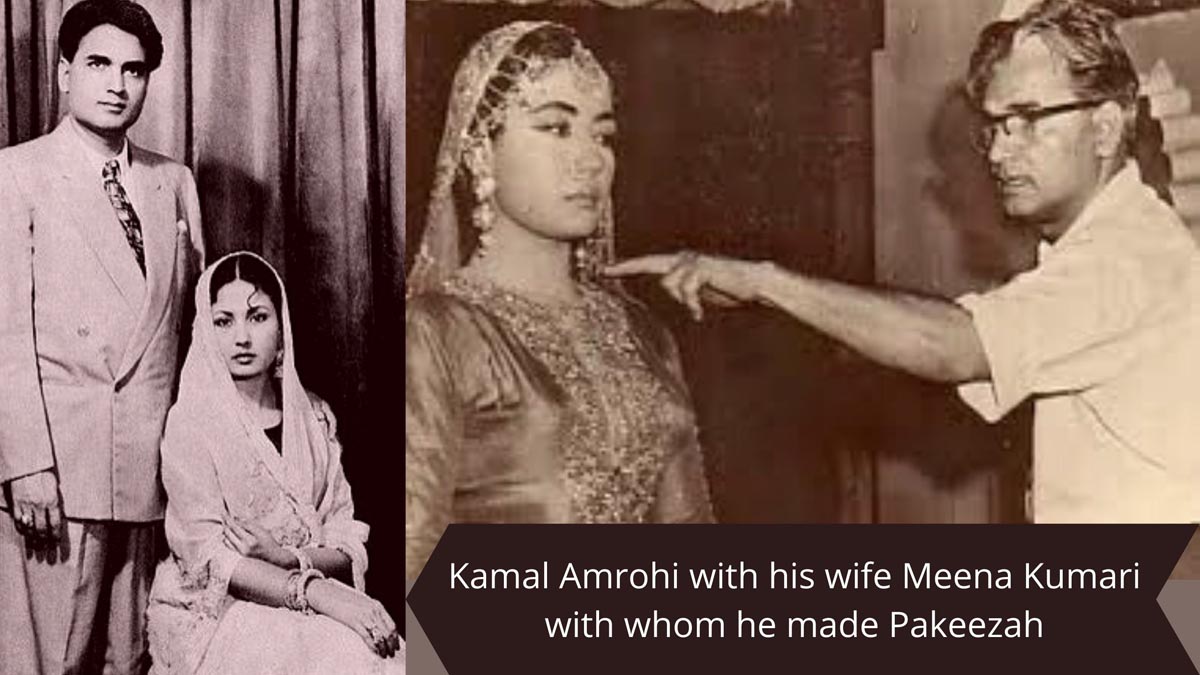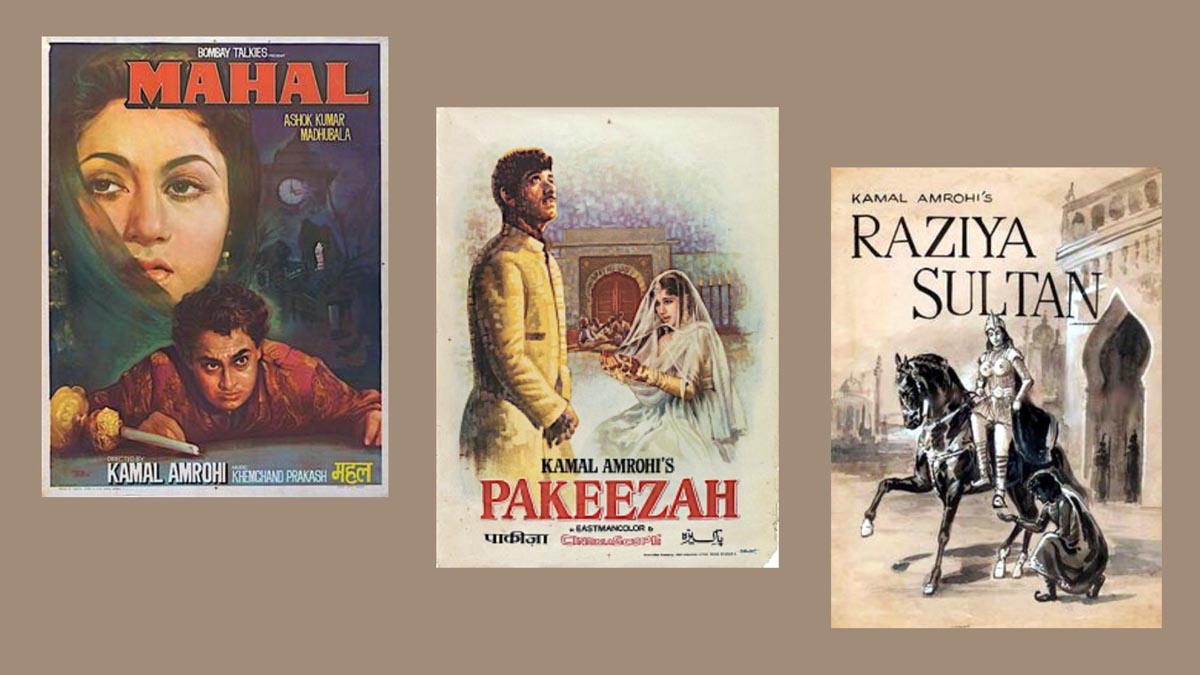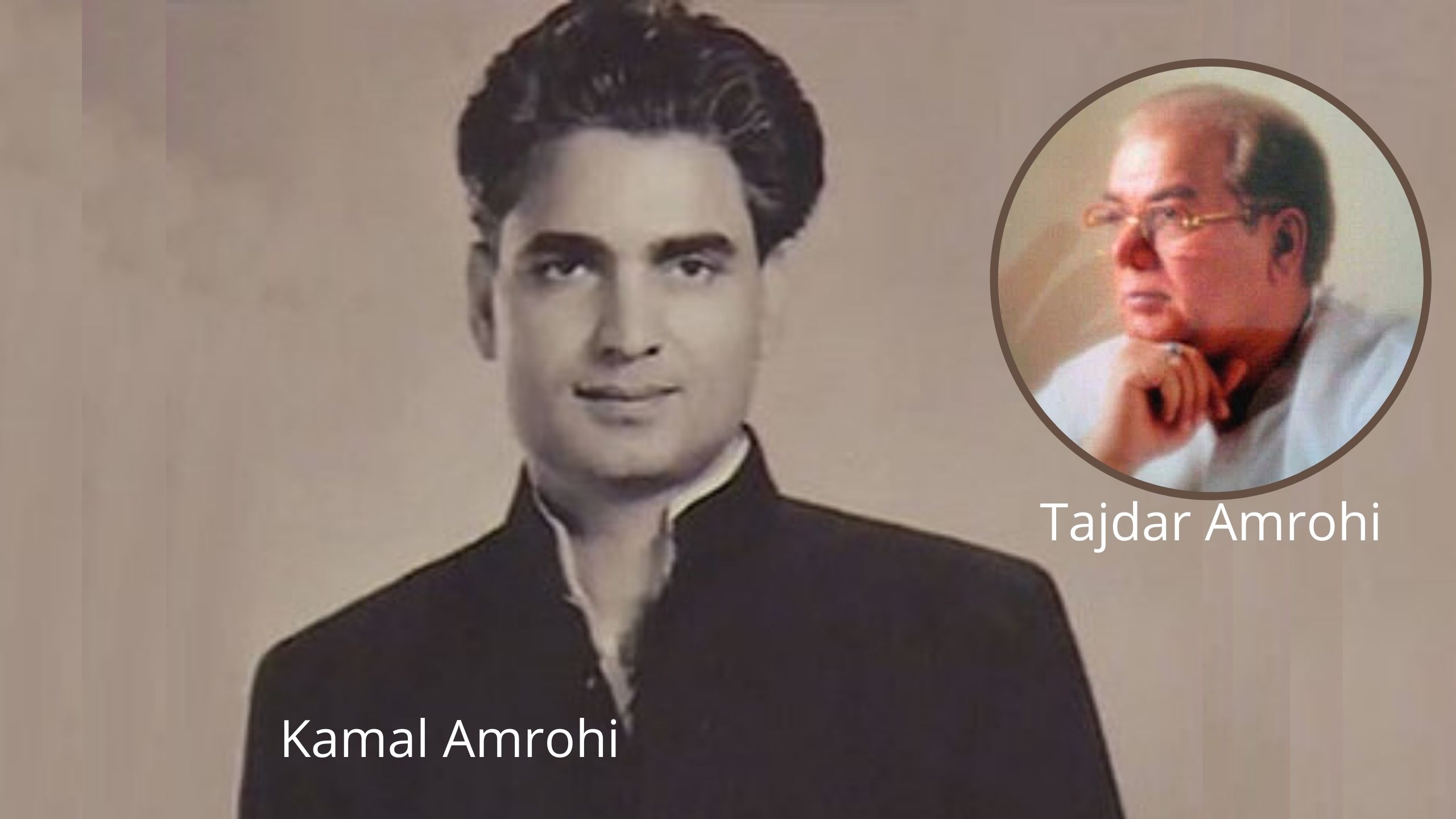‘Kamal Amrohi was everything for Pakeezah, right from the first frame to the last.’
Tajdar Amrohi remembers his legendary father Kamal Amrohi
January 17, 2021 marks the 103rd birth anniversary of the legendary filmmaker and screenwriter Kamal Amrohi.
His Hindi films include Mahal (1949), Pakeezah (1972) and Razia Sultan (1983). He established Kamal Pictures (Mahal Films) in 1953 and (Kamal Amrohi Studios) Kamalistan Studio in Bombay in 1958.
Kamal Amrohi’s son Tajdar Amrohi also turned screenwriter and filmmaker and manages Kamal Amrohi Studios. Amrohi’s grandson Mashhoor Amrohi is an actor-director while his other grandson Bilal Amrohi is also an actor. They continue their grandfather’s legacy in Bollywood.
Remembering him on his birth anniversary, Kamal Amrohi’s younger son Tajdar Amrohi talks about his father with a mixed bag of emotions.
Talking about Kamal Amrohi’s initial days in Bollywood, Tajdar Amrohi spoke about Sohrab Modi’s historical epic, Pukar (1939) which established his father as a celebrated screenwriter at the age of 18. Tajdar pointed out that the golden jubilee hit is “one of the most decorative and ornamental films in Bollywood.”
After the success of their first collaboration, Sohrab Modi and Kamal Amrohi worked together for Minerva Movietone’s Jailor (1938) which also turned out to be a golden jubilee hit.
Tajdar shared that his father was “practically everything” for the movie Pakeezah “right from the first frame to the last frame.”
“You can imagine that the same art director has never created those kinds of sets which he erected in Pakeezah or in Razia Sultan. That work was done by Mr Kamal Amrohi. He was even the costume designer for Pakeezah.”
Renowned for his perfectionism, Amrohi’s Pakeezah (1972) has acquired a cult status and is revered as one of the most elaborate musicals of Indian cinema. Tajdar shared that his father was “practically everything” for the movie Pakeezah “right from the first frame to the last frame.” Explaining that he does not intend to take away the credit of others, Tajdar mentioned that his father turned dialogue writer, screenplay writer, song writer, director, producer and even a costume and art designer for the movie.
He further said, “You can imagine that the same art director has never created those kinds of sets which he erected in Pakeezah or in Razia Sultan (1983). That work was done by Mr Kamal Amrohi. He was even the costume designer for Pakeezah.”
Tajdar went on to talk about his father’s next legendary work Mughal-E-Azam. He said that “95% of that film’s dialogues are written by Kamal Amrohi” and ruefully remarked how Mr K Asif “unfortunately indulged three other names into the credit because probably he never wanted to give away full credit to my father. So I say with authority that practically all the dialogues of Mughal-E-Azam were written by Kamal Amrohi.”
Quoting a famous dialogue from Pakeezah, “Aapke paav bahut haseen hai,” Tajdar went on to talk about his father’s next legendary work Mughal-E-Azam (1960). He said that “95% of that film’s dialogues are written by Kamal Amrohi” and ruefully remarked how Mr K Asif “unfortunately indulged three other names into the credit because probably he never wanted to give away full credit to my father. So I say with authority that practically all the dialogues of Mughal-E-Azam were written by Kamal Amrohi.”

Tajdar also talked about his father’s avant-garde movie Mahal (1949). He remarked that “the first ‘reincarnation’ film of the Indian film industry was Mahal. It was my dad’s first directorial venture. The story was his and it was a super duper hit.” Another experimental film in Kamal Amrohi’s career was Shankar Hussain (1977); a movie on national integration which in Tajdar’s words, “he did not produce or direct, but wrote.”
Tajdar spoke about how the song “Aayega aane wala” from his father’s movie Mahal proved to be a milestone in famous Bollywood singer Lata Mangeshkar’s career. He said, “She achieved fame with this song. After the song “Aayega Aane Wala” from Mahal she became a celebrity.”
Talking about his father’s contemporaries, Tajdar spoke about how the song “Aayega aane wala” from his father’s movie Mahal proved to be a milestone in famous Bollywood singer Lata Mangeshkar’s career. He said, “She achieved fame with this song. After the song “Aayega Aane Wala” from Mahal she became a celebrity.”
Exalted by his father’s achievements, he mentioned that six of the best songs of Lata Mangeshkar’s life — “Aayega aanewala,” “Mushkil hai bahut mushkil,” “Aye dil-e-nadaan,” “Chalte chalte yun hi koi,” “Inhi logon ne” and “Ajeeb dastan hai yeh” — were from Kamal Amrohi’s films.
Exalted by his father’s achievements, he mentioned that six of the best songs of Lata Mangeshkar’s life — “Aayega aanewala,” “Mushkil hai bahut mushkil,” “Aye dil-e-nadaan,” “Chalte chalte yun hi koi,” “Inhi logon ne” and “Ajeeb dastan hai yeh” — were from Kamal Amrohi’s films.
While talking about Daera, Tajdar mentioned that it was the “the first art film of India.” He also mentioned that the famous news daily The Times of India appreciated the film by calling it “a poem on celluloid.”
Kamal Amrohi directed only four movies in his lifetime — Mahal, Daera, Razia Sultan and Pakeezah. While talking about Daera (1953), Tajdar mentioned that it was the “the first art film of India.” He also mentioned that the famous news daily The Times of India appreciated the film by calling it “a poem on celluloid.”

Concluding the conversation, Tajdar said, “I strongly feel that till this world will last, Hindi cinema will last, Indian cinema will last — the names Kamal Amrohi and Pakeezah would never diminish.”
“Pakeezah will keep shining at the top of the list among all his other films like Mahal, Razia Sultan, Mughal-E-Azam, Dil Apna Aur Preet Parai and rest of his films.”
Our take:
However, we feel that his father has not received his due share of recognition. An unfortunate part is that inspite of being recognised as a legendary filmmaker, Kamal Amrohi never got a National Award. We hear names cropping up every year for National Awards, but Kamal Amrohi has never ever been given a National Award — neither in his lifetime, nor posthumously.
Tajdar Amrohi agrees with us on this. Though he acknowledges the fact that the audiences have awarded his father’s work in the true sense, he does feel that neither a State Government nor the Central Government has honoured Kamal Amrohi’s works. We also feel that people from Bollywood should raise their voice in this matter.

